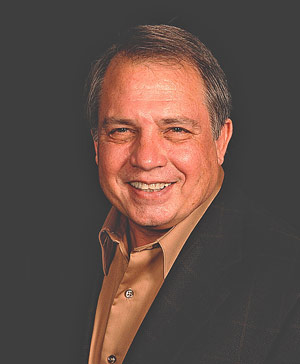“A Piece of My Mind”
July 2014 Newsletter from Donald Shoemaker
Advancing Christian Faith and Values, Defending Religious Liberty for All, Supporting Civility and the Common Good through Preaching, Teaching, Writing, Activism and Reasoned Conversations
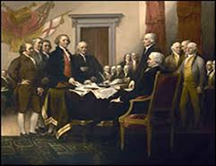
“We hold these truths to be self-evident, that all men are created equal, that they are endowed by their Creator with certain unalienable Rights, that among these are Life, Liberty and the pursuit of Happiness. That to secure these rights, Governments are instituted among Men, deriving their just powers from the consent of the governed…”
– The Declaration of Independence, July 4, 1776
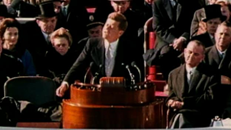
“The same revolutionary beliefs for which our forebears fought are still at issue around the globe—the belief that the rights of man come not from the generosity of the state but from the hand of God.”
– Inaugural Address by John F. Kennedy,
January 20, 1961
Message of the Month—
1814 – 2014
Two Hundred Years of
“The Star Spangled Banner”
Oh! Thus be it ever, when freemen shall stand
Between their loved home and the war’s desolation!
Blest with victory and peace, may the heav’n rescued land
Praise the Power that hath made and preserved us a nation.
Then conquer we must, when our cause it is just,
And this be our motto: “In God is our trust.”
And the star-spangled banner in triumph shall wave
O’er the land of the free and the home of the brave!
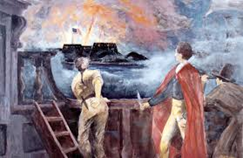 Francis Scott Key was on a British ship negotiating the release of prisoners on the night of September 13-14, 1814. He was stuck for the night—not allowed to leave because he knew details of the British position and plans.
Francis Scott Key was on a British ship negotiating the release of prisoners on the night of September 13-14, 1814. He was stuck for the night—not allowed to leave because he knew details of the British position and plans.
British ships bombarded Fort McHenry in advance of a planned invasion of Baltimore (never happened). It was quite a one-sided engagement because the ships were beyond range of the fort’s guns. For 25 hours the bombardment raged. At night, since the city was darkened, the only light came from British shells.
From his excellent vantage point on the British ship Key was able to see the American flag still flying over the fort at dawn. When he left the ship to return to Baltimore he was inspired to write a poem about the experience, “Defence of Fort M’Henry.”
The poem was later published, then set to the tune of the British drinking song “To Anacreaon in Heaven” written c. 1775 by John Stafford Smith. A resolution of Congress signed by President Hoover in 1931 made it our National Anthem.
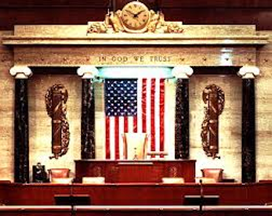
(U.S. House of Representatives.
Verses 1-3 of the Anthem are at the end of this Newsletter.)
Take it from one who sang it twice this year before charity races, it’s a hard song to sing! It goes too low; it goes too high. But “The Star Spangled Banner” remains deeply imbedded in America’s heritage and patriotic life.
The fourth and last verse, reproduced above, reveals a clear understanding of America’s religious heritage. It reflects the Providence of God over America and an optimistic outlook, perhaps too much so, promising success in our just wars. America’s challenge, in turn, is to ensure that our conflicts are indeed in pursuit of a just cause and by just means.
Our motto, “In God We Trust” is ubiquitous in America—on every bill and coin we hold and over many a governmental activity. Does it live in our hearts and practice?
Valuing Persons as Persons—a quote from Michael Gerson
“The worst problem with utilitarianism – measuring the value of a life by its social usefulness – is its cruelty. It tells vulnerable people they are useless. A compassionate, welcoming society affirms exactly the opposite: Vulnerable people deserve our special attention and care. And most of us will need that care, at some point or another.”

Michael J. Gerson, presidential speechwriter and news writer, is a Visiting Fellow with the Center for Public Justice and a nationally syndicated columnist for The Washington Post. This quote is from a transcript in Capital Commentary, “Society and Dependence,” January 3, 2014
Religious Liberty Vigilance – Needed Around the World

“Congress shall make no law respecting an establishment of religion, or prohibiting the free exercise thereof…”
– 1st Amendment (Our “First Freedom” in the Bill of Rights)
“Those who expect to reap the blessings of freedom must…undergo the fatigue of supporting it.”
– Thomas Paine
Freedom to believe or not believe, freedom to speak out to convince others, freedom to convert from one faith to another—all these are fundamental to the American Way.
And not just the American Way! Article #18 of “The Universal Declaration of Human Rights” (adopted by the United Nations General Assembly in 1948) expressed these freedoms this way:
Everyone has the right to freedom of thought, conscience and religion; this right includes freedom to change his religion or belief, and freedom, either alone or in community with others and in public or private, to manifest his religion or belief in teaching, practice, worship and observance.
See this contrast:
KABUL, Afghanistan — In a dank basement on the outskirts of Kabul, Josef read his worn blue Bible by the light of a propane lantern, as he had done for weeks since he fled from his family in Pakistan…
On paper, Afghan law protects freedom of religion, but the reality here and in some other Muslim countries is that renouncing Islam is a capital offense.
Josef’s brother-in-law Ibrahim arrived in Kabul recently, leaving behind his family and business in Pakistan, to hunt down the apostate and kill him…
“If I find him, once we are done with him, I will kill his son as well, because his son is a bastard,” Ibrahim said, referring to Josef’s 3-year-old child. “He is not from a Muslim father.”
…For Josef, who has recently changed hiding places, the time passes slowly now, with little company other than his Bible. He can hear the muezzin calling Muslims to prayer, a reminder of danger’s proximity and the paradox he lives now…
“My body is in prison, but my soul is free.”
– Excerpts from “A Christian Convert, on the Run in Afghanistan,”
New York Times, June 22, 2014
Note: as of this writing Meriam Ibrahim, daughter of a Muslim father and a Christian mother (who raised her) and under sentence of death in Sudan for refusing to convert from Christianity to Islam, had her sentence overturned on appeal. But she was arrested again at the Khartoum airport as she planned to leave the country after being reunited with her Christian husband. Released from custody, she has taken refuge at the U.S. Embassy.
Don’s Upcoming Ministries
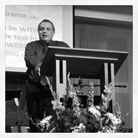
July 17-21 – Attend the annual meeting of the Fellowship of Grace Brethren Churches in Washington, D.C. Present resolutions prepared by the Social Concerns Committee to the delegates at the business session.
September 9 – Lead a meeting for ministers (the district ministers of the Fellowship of Grace Brethren Churches) at the Seal Beach Police Department. Topic: How ministers and churches responded to the “salon massacre” of October 12, 2011 and the lessons to be learned. Contact me for more information on attending this event.
Bible Insight: The Immigrant Among Us (Part 1)
Now a new king arose over Egypt, who did not know Joseph. He said to his people, “Behold, the people of the sons of Israel are more and mightier than we. Come, let us deal wisely with them, or else they will multiply and in the event of war, they will also join themselves to those who hate us, and fight against us and depart from the land.”
– Exodus 1:8-10 English Standard Version
We are all immigrants. My ancestors immigrated to the U.S. from Germany in the 1840’s to seek a better life. On the ship was little 2-year-old Dorothea Bohning. She would marry Ernst Fredrich Walker in 1860 and they would be my great-grandparents.
The families settled in Ohio where there were many German immigrants like them who pretty much stayed to themselves rather than assimilating much. They farmed, and of course were loyal to the faith they brought with them which was otherwise uncommon in the area—Lutheran Christianity.
They spoke German—exclusively at first. German was also the primary language of the 2nd and 3rd generations. My mother’s first tongue was German. Was it the primary language for my generation, the 4th generation? Nein!
The Bible is very much a book about immigrants, going back to the very first book—Genesis. From earliest Bible times, immigration was a common response to hunger and danger and bondage. The human heart has yearned for religious liberty, safety, food, opportunity, and the meeting of basic needs.
Abram migrated from Haran to Canaan by God’s directive. Jacob fled his angry brother (ostensibly to get a wife) and went to his relative Laban back in “the old country.” Later he fled Laban and his abuse, taking his wives, children and possessions with him. When severe famine fell on the land, Jacob sent his sons to Egypt for food. Eventually his whole extended family migrated there (see the story below).
In one of the Bible’s most beautiful stories, an Israelite named Elimelech took his wife, Naomi, and their two sons to Moab because there was a famine in Israel. The story of Ruth unfolds when Naomi, bereft of her husband and sons, returned to Israel and Ruth the Moabite immigrated with her.
Joseph, son of Jacob, was God’s instrument to provide food for Egypt during a 7-year famine. He rose in power to be second only to Pharaoh. At Pharaoh’s invitation Joseph brought his father, brothers and their families to live in Egypt. Read the interesting story in Genesis 41-47.
Joseph and all his generation died. More generations came and went until the day came that a new Pharaoh looked on these immigrant people with alarm.
Clearly, the Israelites, once received with open arms because Joseph had been such an asset to the nation, were no longer welcome. It was somewhat like our nation’s attitude toward Asians in years past. Once the Transcontinental Railroad was completed, Chinese workers were no longer valued. Once we were at war with Japan, something must be done about American Japanese. Immigrants of German descent likewise were suspect and experienced discrimination during the two World Wars, some even being sent to internment camps.
According to Exodus One, there were three reasons why the Israelites went from being welcomed to being despised.
First, Pharaoh didn’t know about Joseph. Whatever benefit he had been to Egypt, whatever high position he once held—this was gone from memory. Only the present “immigrant problem” mattered, not the value in the past.
Second, there were now simply too many of them! “Behold, the people of the sons of Israel are more and mightier than we.”
Third, these Israelites, well, they just aren’t “us”; they are “them!” “In the event of war, they will turn against us, join the enemy, and leave.”
So Pharaoh subjected the Israelites to the menial jobs his own people wouldn’t want to do anyway—work in the fields and build the king’s cities.
Next month we’ll see another of his solutions and how it was thwarted by people who knew and feared God. Meanwhile, do you have a family immigration story to ponder?
“The Star Spangled Banner” (verses 1-3)
Oh, say can you see by the dawn’s early light
What so proudly we hailed at the twilight’s last gleaming?
Whose broad stripes and bright stars thru the perilous fight,
O’er the ramparts we watched were so gallantly streaming?
And the rocket’s red glare, the bombs bursting in air,
Gave proof through the night that our flag was still there.
Oh, say does that star-spangled banner yet wave
O’er the land of the free and the home of the brave?
On the shore, dimly seen through the mists of the deep,
Where the foe’s haughty host in dread silence reposes,
What is that which the breeze, o’er the towering steep,
As it fitfully blows, half conceals, half discloses?
Now it catches the gleam of the morning’s first beam,
In full glory reflected now shines in the stream:
‘Tis the star-spangled banner! Oh long may it wave
O’er the land of the free and the home of the brave!
And where is that band who so vauntingly swore
That the havoc of war and the battle’s confusion,
A home and a country should leave us no more!
Their blood has washed out their foul footsteps’ pollution.
No refuge could save the hireling and slave
From the terror of flight, or the gloom of the grave:
And the star-spangled banner in triumph doth wave
O’er the land of the free and the home of the brave!



